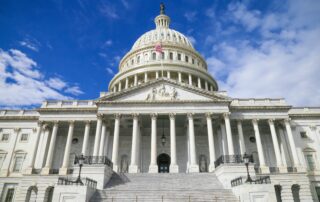Political Participation
Shaping their own future
When women participate in the political process, they shape policies in ways that reflect their interests and needs. The Status of Women in the States’ Political Participation Index looks at women as voters, grassroots activists and campaign fundraisers, and officeholders and examines the uneven progress they have made.
Articles and Publications
The Gender Wage Gap: 2017; Earnings Differences by Gender, Race, and Ethnicity
DOWNLOAD REPORT The Gender Wage Gap: 2017 Earnings Differences by Gender, Race, and Ethnicity The ratio of women’s and men’s median annual earnings was 80.5 percent for full-time/year-round workers in 2017, unchanged since 2016.[1] This means a gender wage gap for full-time/year-round workers [...]
The Well-Being of Women in Utah in 2018
As of 2016, women in Utah still work outside of the home at similar rates to women nationally and—while not yet at the same levels as U.S. women—they also continue to pursue business ownership, make progress in educational attainment, and overcome some aspects of poverty.
Single Mothers with College Degrees Much Less Likely to Live in Poverty
DOWNLOAD REPORT Single Mothers with College Degrees Much Less Likely to Live in Poverty Earning a postsecondary degree is a well-established pathway out of poverty, and degrees are especially life-changing for women raising children on their own. Analysis by the Institute for Women’s [...]
The Shifting Supply and Demand of Care Work: The Growing Role of People of Color and Immigrants
As the Baby Boom generation matures and current unmet child care needs remain constant, the United States faces a burgeoning crisis in the demand for care workers. The market has slowly but surely begun to adapt, seeing an overall growth of 19 percent in the number of care workers between 2005 and 2015, with most of that growth in adult care. The U.S. Department of Labor suggests that this will only grow further, projecting that the economy will add more than 1.6 million jobs in occupations related to adult care by 2024 (Rolen 2017).
The Need to Promote Gender Diversity in Entrepreneurship, Innovation, and Patenting: Written Testimony Submitted to the House Small Business Committee
IWPR’s research finds that women patent inventions at much lower rates than men, which means that potential innovations to improve technology, treat illness, and improve everyday life are being left on the table.
Investing in Single Mothers’ Higher Education: Costs and Benefits to Individuals, Families, and Society
Postsecondary education is a reliable pathway to economic security and is increasingly important to securing family-sustaining employment. For single mother families, who make up a growing share of U.S. families, and who are especially likely to live in poverty, college attainment is a game changer for improving family well-being and meeting the demands of a changing economy.







